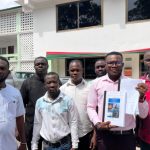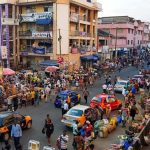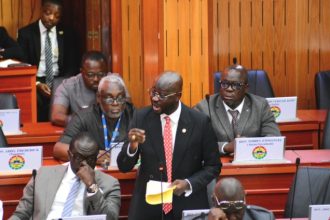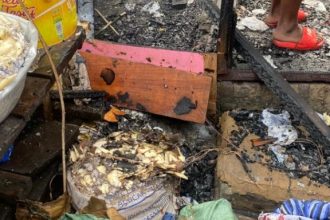The Ashanti Region has taken custody of 150,000 doses of the AstraZeneca COVID-19 vaccines.
This was disclosed by the Regional Medical Director, Dr Emmanuel Tenkorang, as the region started its vaccination programme on Tuesday, March 2.
Speaking before the Asantehene Otumfuo Osei Tutu II had his vaccination at the Manhyia Palace, Dr Tenkorang outlined steps through which the vaccination will be done in the region.
“Otumfuo will take the first jab, and then from there, we will launch the vaccination programme for the entire Greater Kumasi and Obuasi districts. That’s how we will follow. From there, we will go to the Regional coordinating council, where the Regional coordinating Directors and executives of this region will also take it.
We have very important personalities in this region, and they will also take their vaccination at the regional coordinating council… we’ve already come up with the facilities where these vaccinations will take place,” he stated.
According to him, members of the medical fraternity will also receive their vaccines at the Suntreso Hospital.
A total of 112 vaccination centres have been earmarked for the exercises in the region.
Fourteen districts in Kumasi and two districts in Obuasi are expected to be covered.
Ghana received 600,000 doses of the AstraZeneca COVID-19 vaccines on February 24, 2021.
Prior to the arrival of the life-saving vaccines, several conspiracy theories had been raised over the medication.
But as part of efforts to boost public confidence in the vaccines, President Akufo-Addo, and his vice, as well as their spouses, took the vaccination on live Telecast, Monday, March 1.
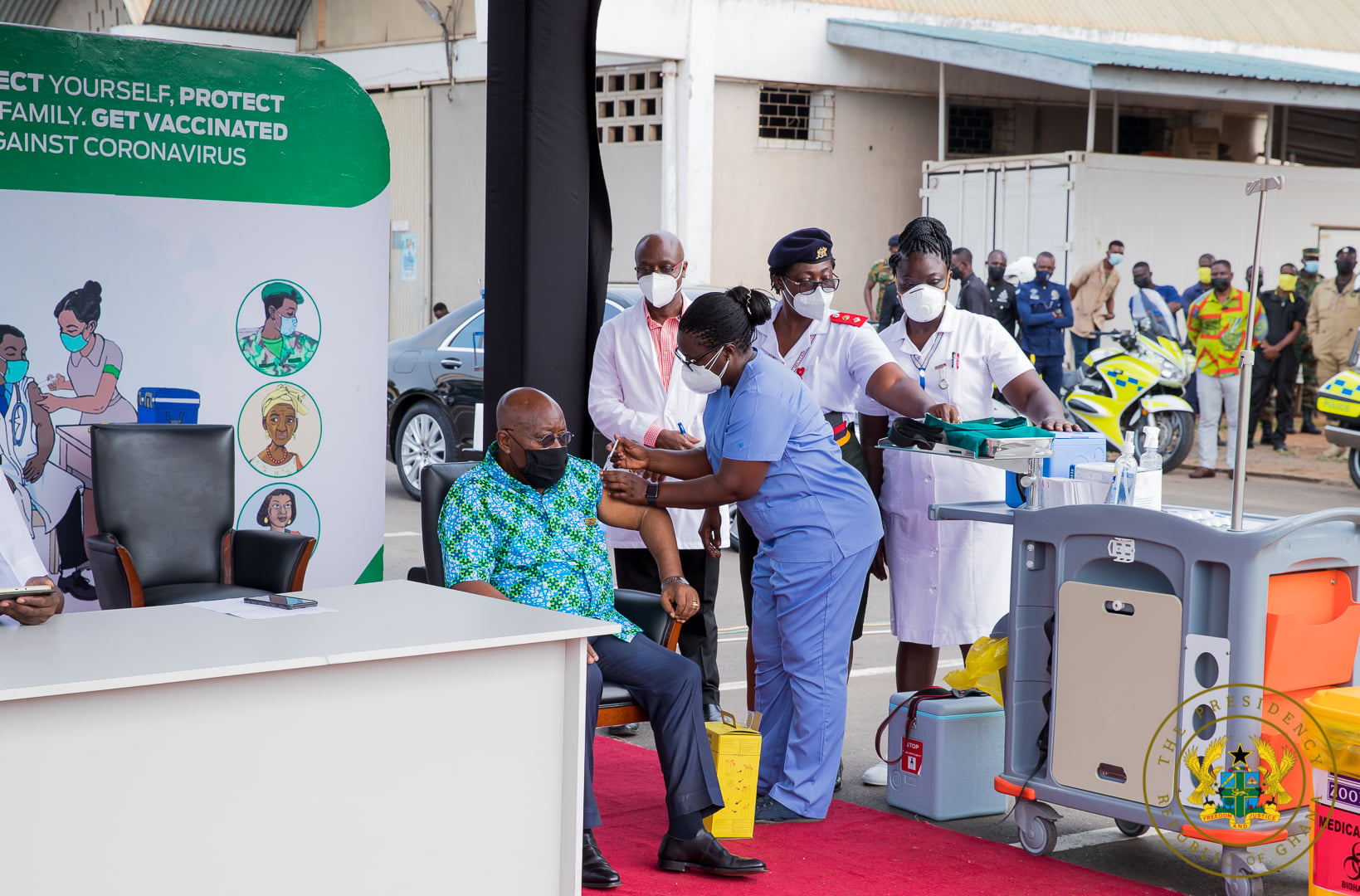
The former President, John Dramani Mahama, and his wife followed on March 2 to allay fears of mistrust during the vaccination process.
Several other dignitaries, including the former Speaker of Parliament, Mike Oquaye; IGP, James Oppong-Boanuh; Ministers of State, and members of the security agencies, have all taken their first jabs of the vaccine.
The others include members of the clergy and members of the Council of State.
Frontline workers in the fight against COVID-19 have also been earmarked as part of persons to benefit from the first consignment of the vaccines.
Others expected to benefit from the first batch of the vaccines include adults 60 years and over, people with underlying health conditions, frontline executive, legislature, judiciary, and their related staff, essential workers, teachers, and other personalities in Greater Accra Metro, including Awutu Senya and Awutu Senya East in the Central Region.
A similar segmented population in the Greater Kumasi Metro and Obuasi municipality will also be covered.
The general vaccination started today, March 2, 2021.
Arrival of COVID-19 vaccines
Ghana received 600,000 of the life-saving COVID-19 vaccine from the UN-partnered COVAX initiative.
Ghana is the first country in the world to receive COVID-19 vaccines as part of the COVAX initiative to ensure equitable access for everyone.

The vaccines arrived at the Kotoka International Airport on an Emirates Airlines cargo flight and were received by a delegation led by the Minister-designate for Health, Kwaku Agyeman-Manu.
The Vice President, Dr Mahamudu Bawumia, in a speech before taking his first jab of the vaccine, said, “Our goal is to immunize about 20 million Ghanaians”.
He urged Ghanaians to dismiss myths surrounding the vaccine and be cooperative as the government works to combat the deadly virus.
Vaccination programme outline
The first batch of Ghana’s COVID-19 vaccines will be given to persons in 43 areas identified as hotspots of the infection that has claimed 607 lives with 5,444 active cases.
A total of 25 of the epicentres are in the Greater Accra, 16 are located in Ashanti Region, and two in the Central Region.
Ghana plans to vaccinate 20 million by the end of 2020.
The vaccination will be rolled out in segments.
Group 1 is categorised as “persons most at risk and frontline State officials”.
It includes healthcare workers, frontline security personnel, persons with underlying medical conditions, persons sixty (60) years and above, and frontline members of the Executive, Legislature, and Judiciary.
Group 2 is made up of other essential service providers and the rest of the security agencies.
It includes water and electricity supply services, teachers and students, supply and distribution of fuels, farmers and food value chain, telecommunications services, air traffic and civil aviation control services, meteorological services, air transport services, waste management services, media, public and private commercial transport services, the Police Service, Armed Forces, Prisons Service, Immigration Service, National Fire Service, CEPS Division of the Ghana Revenue Authority, and other members of the Executive, Judiciary, and Legislature.
Group 3 consists of the rest of the general public, that is, all persons over eighteen (18) years, except for pregnant women.
The final group, that is Group 4, will include pregnant mothers and persons under the age of eighteen (18), and they will be vaccinated when an appropriate vaccine, hopefully, is found or when enough safety data on the present vaccines are available.
Special arrangements will be made for persons with disabilities who fall within these groups.
COVID-19 situation in Ghana
As of March 2, 2021, Ghana’s total COVID-19 case count stood at 84,023.
According to data available on the Ghana Health Service’s website, the country’s active cases stand at 5,444.
607 others have died from the disease.
A recent surge in cases raised concerns among the public. The spike was mainly attributed to the non-adherence of the COVID-19 safety protocols.




